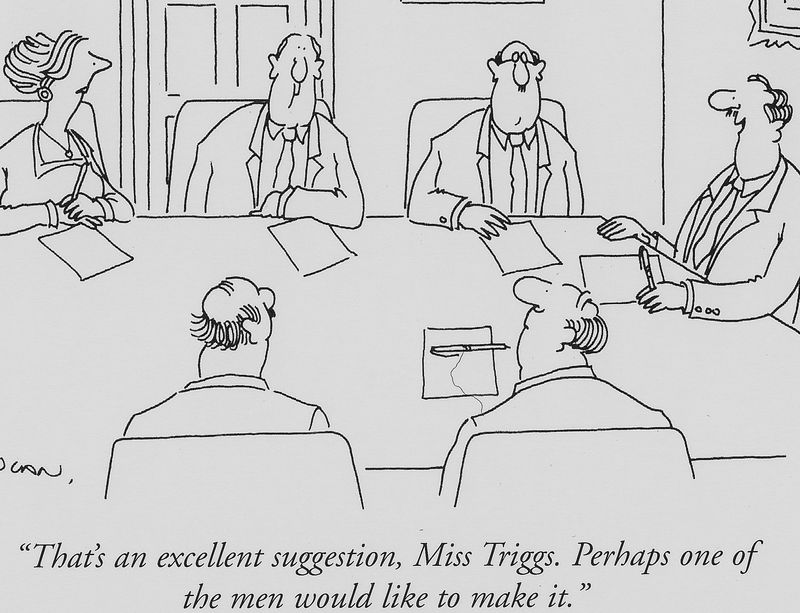The depths of societies ingrained sexism — and the degree to which successful women understand it is a fact of life that requires constant vigalance and adjustment — never ceases to amaze and trouble me. A new study in the Administrative Science Quarterly (Volume 56, pages 622-641) by Yale faculty member Victoria L. Brescoll presents a trio of studies that examine gender, power, and volubility (talking time). The headline above contains the upshot. Here are some details:
1. In a study of United States senators (using data from 2005 and 2007), more powerful male senators talked quite a bit more on the senate floor than less powerful male senators. But there were no significant differences between how much powerful female senators talked compared to less powerful female senators.
2. This finding was replicated in a controlled experiment — again, more powerful men talked more, more powerful women didn't. Additional analyses suggested that powerful women hesitated to talk more because they were concerned about "potential backlash," that they would be seen as less likable, "out of line," domineering, too controlling, would lose power, and be less effective.
3. These fears of backlash were confirmed in a third study. The basic set-up was that research subjects were asked to assess hypothetical male and female CEO candidates –one who tends to express opinions in meetings and the other who tends to keep opinions to him/herself. The effects — the ratings by both male and female subjects — were troubling. The talkative male CEO candidate was rated as more suitable for leadership than the less talkative one on measures including whether or not the person should be hired, is entitled to power, and competence. BUT for the female CEO, the exact opposite pattern was seen. The female CEO candidate who withheld their opinions were rated more highly than the female candidate who tended to express their opinions.
Pretty disturbing, huh? But it does show that the paths to power for women and men are quite different. The blabber mouth approach works for guys, but backfires on women.
The question is — what can be done about this problem? Certainly a bit of self-awareness is in order, but I do wonder if there are ways to dampen or reverse these effects by developing organizational cultures — through employee selection, socialization, rewards, and punishments — in the right way. There are some organizations I work with where more talkative and opinionated women do seem to get ahead, and others where the women who get ahead learn to talk less.
In any event, powerful women are often quite adept at finding ways to press their opinions without increasing their talking time. One trick I have seen is that they feed their opinions and evidence to talkative male colleagues "backstage" and convince these guys to present such opinions and evidence as their own in meetings.
Thoughts?
P.S. The entire paper is available here.
P.P.S A big thanks to Carol for sending me the cartoon, just perfect!
